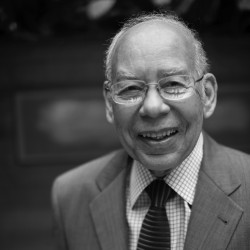When we were children, we learned to sing choruses in Sunday school. “Jesus Loves Me” became a standard in our repertoire, and “The B-I-B-L-E” was another—with its concluding phrase, “I stand alone on the Word of God, the B-I-B-L-E.” Only later did we learn that this sentiment, or determination of commitment, was also an adult concern, a corporate commitment, and a badge of a certain kind of orthodoxy. Much later some of us learned that from antiquity, from Moses to Paul, the early church and beyond, the people of God anchored their faith in the Word of God, intending to conform their lives to its demands. Most Protestant denominations still agree that the Word of God is the only rule of faith and practice.
There is evidence that this tradition has eroded among churches, whether Protestant or Roman Catholic. A guest on a well-respected news hour recently noted that amidst the wrenching tragedy of moral failures among clerics, Roman Catholic bishops were willing to confess their sins and own up to the improprieties of priests—and that, in so doing, they called upon psychologists and psychotherapists for help: they didn’t mention the Bible as a source for such help. “Surely,” Pannell thought, “the Bible has something to say about the matter.” The hanky-panky scandals of Evangelical clergy and church-going politicians mirrors that of the Catholic priests. The erosion seems not to be a loss of reverence for the Bible, but an unwillingness to submit to its authority in personal conduct and behavior. Of course, it would follow that if leadership defaults in the application of the Scriptures to life, members will follow their example. Toxic leaders make toxic followers.
Karl Barth, speaking to a group of pastors, argued that people come to church wanting to know if the story in the text is true, if their expectations in coming to the house of God could be realized. To Barth, expectancy was inherent in the whole situation. But do churchgoers really know what to expect when they attend church? Did the worshipers in Nazareth expect anything different when they attended the synagogue on the day their young member came back to town? Perhaps they expected that it would be just another service—the ritual would be performed, including the reading of the sacred texts, and they would nod their heads in approval as the young preacher read from an ancient passage. What they did not expect was that the Word of God would be fulfilled in their hearing, that God would become present in the Word, that the yesterdays of their cultural prejudices would be recast into the today of the Spirit, and that they would be invited to dance to the Spirit’s invitation to celebrate the wideness of God’s mercy. Their expectancies were rudely disappointed as the Living Word exposed their true relationship to the living God.
Shortly after I arrived at Fuller Theological Seminary, I was asked to pinch-hit as a professor for James Daane, then professor of theology and ministry at Fuller, who was recovering from an illness. I was to take one of his classes, listen to student sermons, grade them, respond, and so on. Later I would become acquainted with James and came to respect him as a theologian. He was fond of arguing “that the truth which the pulpit proclaims is mysterious and powerful . . . the preaching of the Word is, in itself, an enactment of the Word.” Then he would add, “the preaching of the Word produces people who do the Word. Unless people perceive the mysterious creative power of the Word and recognize that when it is preached it does things and creates people who become doers of the Word, their desire to preach the Word in the pulpit or to enact it in the social and political spheres of life will not long endure. . . . the unique and mysterious nature of preaching lies in the unique and mysterious nature of the divine Word.”
There is a scene in Bernard Rose’s film Immortal Beloved that reminds me of the uniqueness of preaching. Ludwig von Beethoven’s secretary and biographer Anton Schindler is engaged in conversation by Beethoven while listening to one of the maestro’s sonatas. Beethoven says, “Music is a dreadful thing. What is it? What does it do?” Schindler replies, “It exalts.” The master scoffs, “If you hear a marching band, is your soul exalted? No, you march. If you hear a waltz, you dance. If you hear a mass, you take communion. It is the power of music to carry one directly into the mental state of the composer. The listener has no choice. It is like hypnotism. So now, what was in my mind when I wrote this?” he challenges Schindler to guess. But Schindler is baffled, so Beethoven tells him the meaning behind his beautiful music: “A man is trying to reach his lover. His carriage is broken down in the rain, the wheels stuck in the mud. He knows she will wait only so long. This is the sound of his agitation. ‘This is how it is,’ the music is saying. ‘Not how you are used to being, not how you are used to thinking, but like this.’” The distinction made Schindler (at least in the film) see the world in an entirely new light.
Is preaching like this? When an audience listens to a sermon are they led directly into the “mental state” of the Bible’s Composer? When they depart the gathering are they aware that they have met God in the preaching? Or do they simply shake the preacher’s hand, smile and say, “That was nice, Reverend”?
This article was published in Theology, News & Notes, Spring 2011, “Empowering Wise Preachers: For a Vigorous Church in a Volatile World.”

